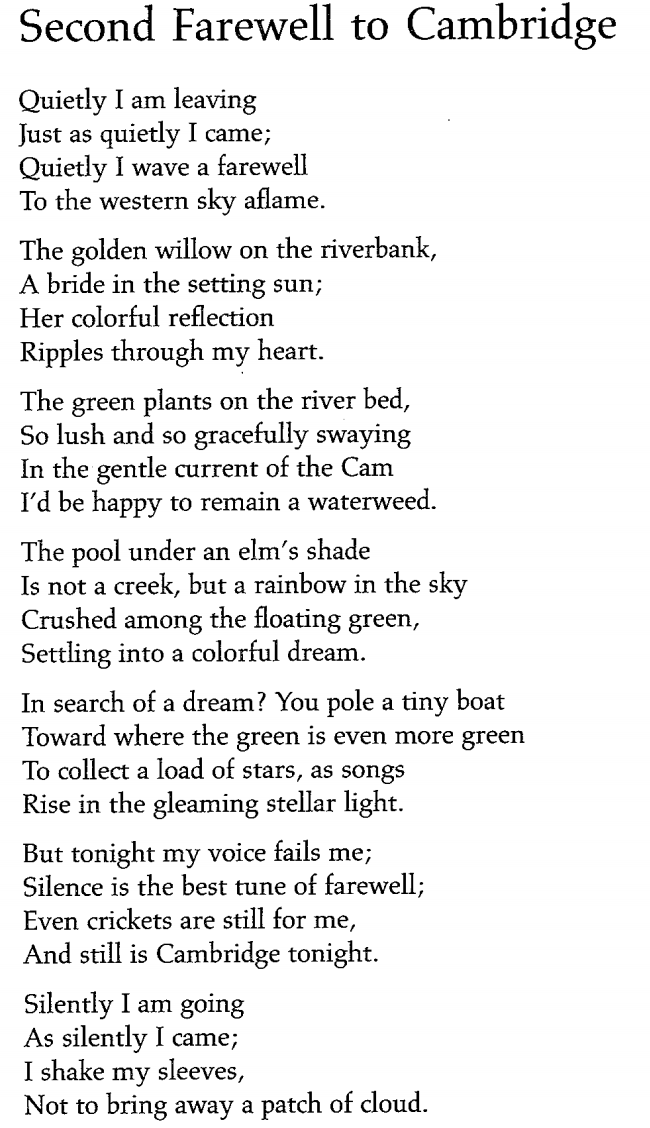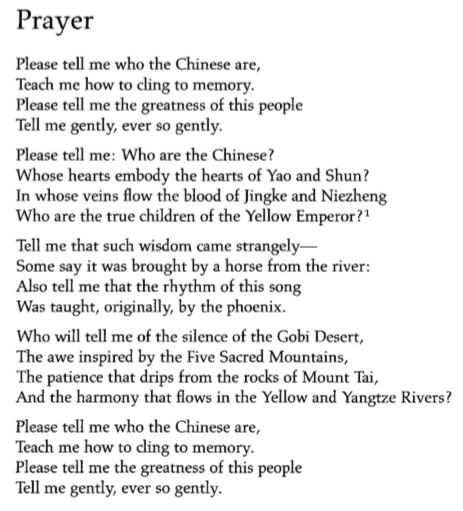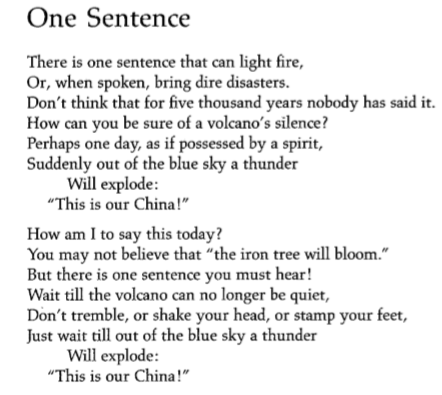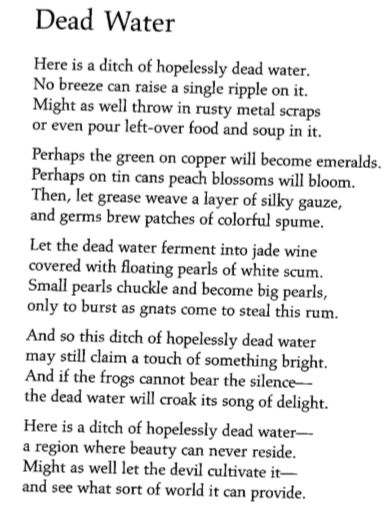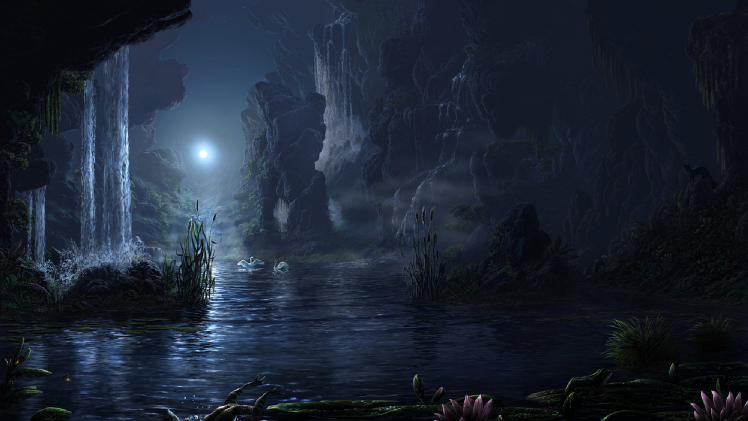Poetic Longing (1920s)
Xu Zhimo (1897-1931)
At first glance, this poem seems to be Xu Zhimo solely writing longingly of Cambridge's allure, but in actuality it speaks to his broader rootlessness in the world after his studies abroad; he likens himself to a cloud, leaving no marks and floating away as silently as he came. Furthermore, Xu Zhimo makes reference to the "three beauties" of the Crescent Moon Society he himself had founded in 1923: the beauty of painting, architecture, and music. This society was formed with the intent of renewing Chinese society through poetry with new poetic forms, as was showcased in his Farewell to Cambridge.
Wen Yiduo (1899-1946)
This poem encases Wen Yiduo's deep sadness for what he views as the loss of Chinese culture, pride, and connection to origin. He references the strengths of Chinese society with grandiose verbiage towards their bloodline and metaphorical comparisons to symbolic figures such as the rising phoenix and a horse who brought wisdom from the river. Nature is an omnipresent theme in Yiduo's work and here is presented as five awe-striking and powerful natural phenomena only found in China. Closing his poem, Yiduo asks his audience to remind him of the greatness of his people; this gentle imperative can be seen as a call-to-action in a time of political struggle to support Chinese democracy as he did.
Wen Yiduo's fiery political activism (and unfortunate loss of life to the Kuomintang) is reflected into his fiery rhetoric of this poem. He utilizes the imagery and sensory strength of natural forces like volcanic eruptions and thunder storms to embody the potential of a united Chinese voice. These natural forces can be seen as reference to mechanistic war forces such as bombs and gunfire; this comparison highlights Wen Yiduo's position as a proponent for free speech and the unity of regular Chinese citizens who were often made weak and tread upon by the violent acts of war. With unity and democracy, Yiduo alludes that the "iron tree" of China will beautifully bloom.
Strong juxtaposition between the repugnance of pollution and the beauty of nature is utilized here to establish a strong position against the destruction of China. Wen Yiduo describes this destruction as the trashy output of mindless industrialism, white scum on what could have been clear water, and unceremonious death. In modern China, these images can be paralleled to city pollution, destruction of nature, and war. Wen Yiduo sees all of these horrors in his China, and is deeply effected by them all; yet, he maintains hope, as seen in his final two stanzas. This structure is similar to Shakespearean and Italian sonnets, as the tone changes in the final two stanzas and a resolution is revealed.
Yu Dafu, "Sinking" (1921)
The Chinese student, after saying his final goodbyes and laments to his China, jumps into the Pacific Ocean between him and his home to his death. This tragedy was a common end for many Chinese students studying in Japan at the government's encouragement and affordance. Abroad, these students were immediately entrenched in an unfamiliar and unfriendly world with the expectations of an entire nation on their shoulders. After a century of shame and a lost series of wars, Chinese citizens held such losses very personally and strived to bring China back to its old pride. This student in particular was unhappy with his studies, had broken all relationships with his family back home, and was so ashamed and emasculated by his background in Japan that he grew paranoid and insane at the mere sight of a Japanese woman. Combined with sexual and emotional repression, he could take such life no longer and died in the waters that separated him and all he knew, loved, and hated at once.
